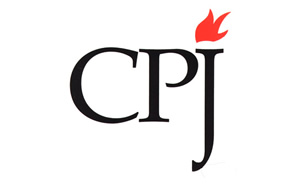Committee to Protect Journalists (CPJ) published its annual report “Attacks on the Press 2010: Armenia.” According to the report, the top two developments of the year were amendments to Armenia’s Law on Television and Radio and government pressure on GALA TV.
“The amendments positioned [Armenian President Serzh] Sargsyan to maintain control over the country’s docile television and radio stations, most of which were owned by pro-government politicians and businessmen,” reads part of the report.
“The amendments enable government regulators to grant or revoke licenses without explanation, as well as impose programming restrictions that would confine some stations to narrow themes such as culture, education and sports,” the Committee said, citing news reports. For instance, GALA TV, a “rare critical broadcaster,” faces an array of government pressures.
Analysts say the changes in the law would provide the government legal cover to keep the popular news outlet A1+ off the air. “A1+ continued to operate as an online outlet. The government claimed domestic internet penetration was approaching 50 percent, although independent estimates were much lower,” the Committee notes. “While print and online media were more pluralistic, there reach was limited to a primarily urban and educated audience.”
CPJ also stressed that another amendment to the law stipulates that only digital television license would be issued for each of the 10 regions outside the capital. “The restriction was seen by some as a means to silence Gyumri-based GALA television, the one domestic station that continued to broadcast criticism of the government.”
“Self-censorship remained widespread in the media, as lawlessness curbed the activities of journalists, human rights defenders and opposition leaders… Throughout the year, police officers routinely harassed, assaulted and arrested journalists, according to local press reports and media anlysts,” notes the report.
“Prosecutors regularly colluded in this practice by failing to investigate police officers, even filing charges on occasion against journalists who protested abuses,” CPJ research showed.
The Committee to Protect Journalists notes at least one positive change in 2010: parliament amended the penal and administrative codes to decriminalize defamation.
“[Armenian President Serzh] Sargsyan later signed the measure, although it was considered largely symbolic because the law was rarely used to harass journalists and authorities retained many other levers of influence,” according to the CPJ report.






